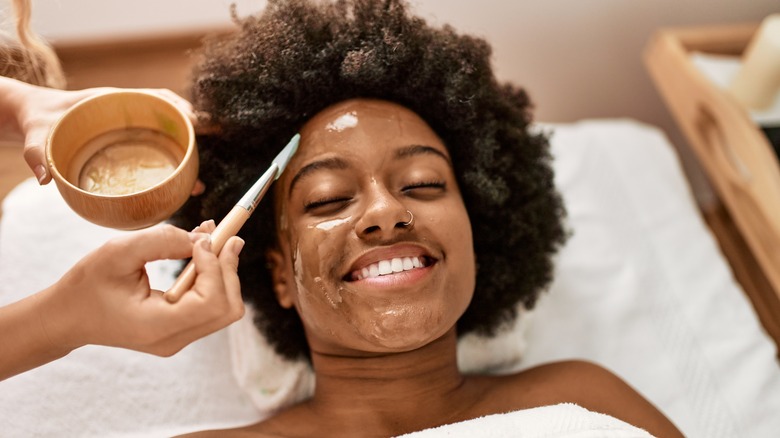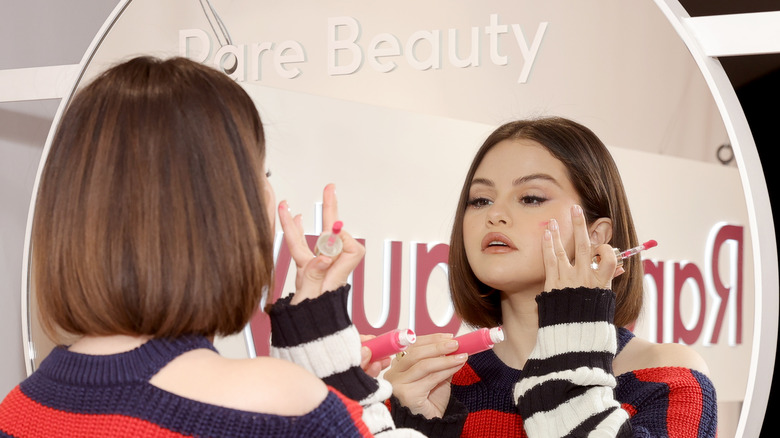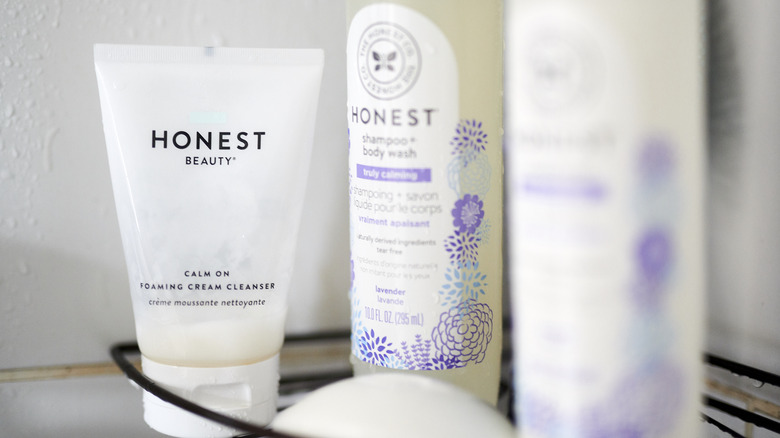What Does Conscious Beauty Really Mean?
We may receive a commission on purchases made from links.
Now more than ever, people are striving to become conscious consumers, especially in regard to beauty products. This mindset emphasizes awareness around what you buy, how it was made, and what your money supports. When you think about the power of a dollar, it can also be seen as your ability to vote for brands you like. Embracing conscious beauty allows each consumer to really hone in on what their personal values are and then find brands that are in alignment with them. Gone are the days of aimlessly strolling the makeup aisle and simply buying what "works." Brands have a lot more to prove these days, and consumers are demanding much more from these major companies.
One example would be the highly anticipated Tarte Shape Tape Foundation launch in January 2018, which was criticized as their shade range was almost entirely geared toward light skin tones. As more and more beauty influencers criticized the product's lack of diversity, consumers simply had no interest in supporting it. The collective "do better" attitude was likely a learning opportunity for companies that saw how much consumers were willing to withhold their purchasing power for their values. When it comes to conscious beauty, the companies' efforts must go even deeper than monetary gain.
Another important aspect of conscious beauty is a brand's ability to evolve. Consumers want to know that a brand hasn't just done the bare minimum but shares in their motivation to grow and learn. This can be related to diversity, equity, and inclusion within the company, as well as the brand's philanthropic efforts.
What are the brand's goals?
As Byrdie mentions, a brand's story is important to consumers because it helps you connect with them and gives your money a sense of purpose. It really isn't enough for a brand to just create makeup or skincare products. Buyers want to know why the brand is passionate about creating those items and how they will use their success for good. The sincerity of the founder often resonates with consumers too because their focus is on something more universal, which impacts people much deeper than the products themselves.
A great example of this is Selena Gomez's Rare Beauty brand. Not only is the packaging seemingly more accessible to those with varying levels of dexterity, but fans believe it was inspired by Gomez's own lupus diagnosis. There is also a tab on the brand's website labeled "Rare Impact" that addresses the brand's mental health initiatives. Gomez has been open about her personal journey with anxiety, depression, and bipolar disorder and now she is using her platform to not only raise awareness about mental health but to also destigmatize the conversation. Gomez's "Your Words Matter" campaign is providing guidance on what to say, or not to say when discussing mental health.
If you or someone you know needs help with mental health, please contact the Crisis Text Line by texting HOME to 741741, call the National Alliance on Mental Illness helpline at 1-800-950-NAMI (6264), or visit the National Institute of Mental Health website.
Is the brand transparent?
According to Ulta Beauty, their view on conscious beauty is all about giving shoppers choices through transparency. Buyers want to know if their beauty products are tested on animals, contain animal byproducts, and how sustainable the brand's packaging is because of the impact it has on the environment. Labeling certain beauty products as "clean" is also a common term that many brands use to emphasize ingredients that are avoided for health or environmental reasons. At Ulta, clean beauty products are guaranteed to avoid certain ingredients that are identified on their "made without" list. This provides consumers with a base level of knowledge so that they can make informed decisions.
Conscious beauty isn't about finding the perfect brand that is already doing everything right. It's more about putting a little bit of extra thought into what you are buying and why you are buying it. With so many beauty brands selling similar products, it's important to stand out in unique ways. When consumers feel like they know and trust a brand, they are more likely to remain loyal. Similarly, as brands keep consumers informed about how they are working toward shared goals of sustainability, ethical sourcing, and clean ingredients, that transparency builds rapport with buyers and keeps them coming back.


